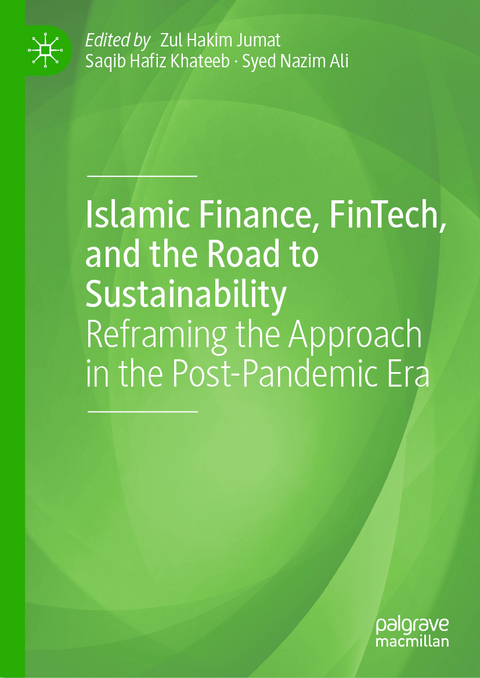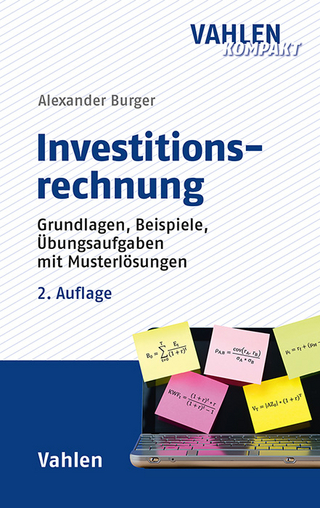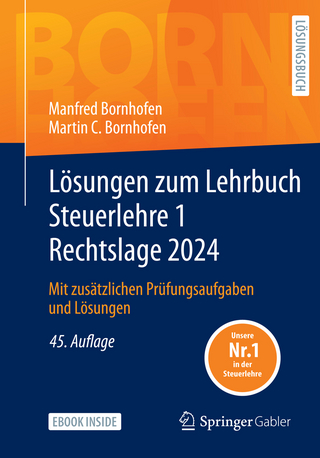
Islamic Finance, FinTech, and the Road to Sustainability
Springer International Publishing (Verlag)
978-3-031-13301-5 (ISBN)
The recent unprecedented economic downturn and global supply chain disruption by the COVID-19 pandemic is accelerating the urgency for sustainable financing infrastructure that is agile, adaptable, and transformable. Sustainability and the 4th Industrial Revolution are about more than just technology-driven change; it is an opportunity to help everyone, including leaders, policymakers and people from all income groups and nations, to navigate industry disruptions and transitioning to a new normal by harnessing converging technologies in order to create an inclusive, human-centered future.
The edited volume provides critical discussions on reframing the Islamic finance approach to sustainability and socio-economic development in the post-pandemic era. It highlights how selected Islamic finance tools alongside FinTech can not only ensure financial sustainability but also promote socio-economic policies that will aid the much-desired value and impact creation in the economy. The book focuses its analysis on the following three areas: reframing Islamic finance sustainability and socio-economic development; innovative Islamic financial tools for sustainable and socio-economic impact; and the role of FinTech in the road to sustainability. The edited volume will be of interest to scholars, researchers, and students of Islamic finance, sustainability, and financial technology.Zul Hakim Jumat is a Researcher for the Center of Islamic Economics and Finance (CIEF), College of Islamic Studies, Hamad Bin Khalifa University (HBKU), Qatar Foundation. Saqib Hafiz Khateeb is a Research Fellow at College of Islamic Studies, Hamad Bin Khalifa University (HBKU), Qatar Foundation. Under the fellowship, he is the Project Lead for IBIR project - a bibliographic databank of Islamic Economics and Finance. Syed Nazim Ali is a Research Professor and the Director for the Research Division, College of Islamic Studies, at the Hamad Bin Khalifa University, Qatar Foundation.
Chapter 1: Islamic Finance, FinTech and the Road to Sustainability - Reframing the Approach in the Post-Pandemic Era: An Introduction.- Part I: Re-Framing Islamic Finance Sustainabilit and Socio-Economic Development.- Chapter 2: Islamic Finance and Sustainability: The Need to Reframe Notions of Shariah Compliance, Purpose, and Value.- Tools and Conditions for Achieving Sustainable Development in Islamic Finance.- Chapter 3: Maqasid al-Shariah and Sustainable Development Goals Convergence: An Assessment of Global Best Practices.- Chapter 4: The Resilience of Islamic Finance Against Pandemic-Induced Future Economic Crisis.- Chapter 5: Emergence of Islamic Finance in the Fourth Industrial Revolution and COVID-19 Post Pandemic Era.- Part II: Innovative Islamic Financial Tools for Sustainable and Socio-Economic Impact.- Chapter 6: Sukuk Innovation: Powering Sustainable Finance in Islamic Markets.- Chapter 7: Mobilizing Funds for Industrialization and Development Through Islamic Value System, Capital Markets, and Social Finance .- Chapter 8: The Role of Green Sukuk in Maqasid Al-Shariah and SDGs: Evidence from Indonesia.- Chapter 9: Is Islamic Microfinance a Resilient Business Model During Periods of Crisis?.- Chapter 10: Empirical Evidence from Arab Countries.- Part III: FinTech Role in The Road to Sustainability.- Chapter 11: Digital Finance and Artificial Intelligence: Islamic Finance Challenges and Prospects.- Chapter 12: Open Banking for Financial Inclusion: Challenges and Opportunities in Muslim-Majority Countries.- Chapter 13: Islamic Specialized FinTech for Inclusive and Sustainable Growth in Sub-Saharan Africa.- Chapter 14: The Role of Technology in Effective Distribution of Zakat to Poor and Needy.- Chapter 15: Notion of Value-Added in RegTech Research Work: What is there for Islamic Finance?
| Erscheinungsdatum | 19.01.2023 |
|---|---|
| Reihe/Serie | Palgrave CIBFR Studies in Islamic Finance |
| Zusatzinfo | XXXIV, 358 p. 38 illus., 25 illus. in color. |
| Verlagsort | Cham |
| Sprache | englisch |
| Maße | 148 x 210 mm |
| Gewicht | 603 g |
| Themenwelt | Wirtschaft ► Betriebswirtschaft / Management ► Finanzierung |
| Wirtschaft ► Volkswirtschaftslehre ► Makroökonomie | |
| Schlagworte | Financial technology and sustainability • Fintech and Islamic finance • innovative Islamic financial tools • Islamic Finance • Islamic Social and Sustainable Impact Financing • Islamic Social Finance and Economic Recovery • Maqasid al-shariah and SDGs • Socio-economic policy improvement • sustainability |
| ISBN-10 | 3-031-13301-3 / 3031133013 |
| ISBN-13 | 978-3-031-13301-5 / 9783031133015 |
| Zustand | Neuware |
| Haben Sie eine Frage zum Produkt? |
aus dem Bereich


